There's something about grilling that just screams summertime. The aroma of smoky char, the sizzle of food over flames, the warm glow of the grill - it all evokes a sense of relaxed enjoyment. But what about grilling octopus? You might be thinking, "Octopus? On the barbie? That sounds a bit adventurous." And you'd be right, it's a bit outside the usual burger and hotdog territory, but trust me, it's an experience worth having.
I'll never forget the first time I tried grilled octopus. It was a casual taverna by the Aegean Sea, and the simple, yet perfectly executed dish changed my perception of this amazing creature. It was tender, smoky, and bursting with flavor. It was a revelation. Since then, I've been on a mission to understand the secrets of grilling octopus, and I'm here to share them with you.
This isn't just a recipe, folks. This is a comprehensive guide, a roadmap to octopus grilling glory. We'll cover everything from choosing the right octopus to the perfect grilling techniques, with a few tips and tricks along the way. So grab a glass of something refreshing, settle in, and let's embark on this culinary adventure together.
(Part 1) Choosing Your Octopus
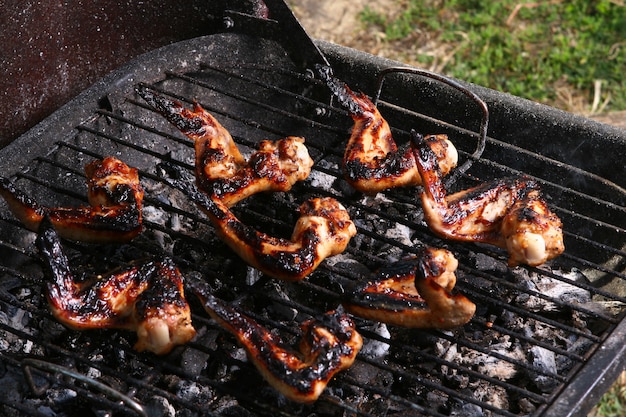
Before you even light the grill, you need to pick your perfect octopus. This is where a good relationship with your local fishmonger is key. They're the experts and can guide you towards the freshest, most suitable octopus for grilling.
What to Look For:
Here's how to spot a prime octopus for your grilling adventure:
- Freshness: The tentacles should be firm and springy to the touch. They should bounce back when you press them. If you see any slimy or discolored areas, or if the octopus smells fishy, it's best to steer clear.
- Size: For grilling, a medium-sized octopus, around 1 to 2 pounds, is ideal. It'll cook more evenly, and you won't be staring at the grill for hours on end.
- Color: A healthy octopus has a vibrant, reddish-purple hue. Avoid any with a faded or dull color, as this can indicate they're not as fresh.
Remember, a little chat with your fishmonger can go a long way. They can give you advice on how to best prepare the octopus and even suggest different grilling techniques. Don't be shy to ask questions!
(Part 2) Prepping the Octopus
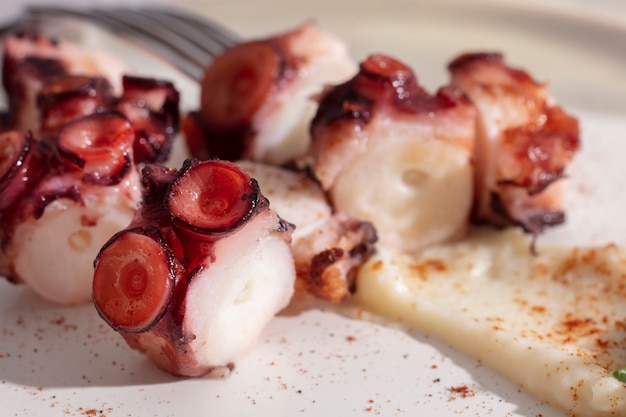
Now that you've got your octopus, it's time to get hands-on and prepare it for the grill. Don't worry, this isn't as intimidating as it might seem.
Cleaning:
First things first, give your octopus a quick rinse under cold water to remove any debris. Now, the beak - a small, sharp part at the center of the octopus's head - needs to be removed. It's best to err on the side of caution and ensure it doesn't end up in your food. Use a sharp knife to pry it out carefully, then discard it.
Tenderizing:
Octopus can be a bit chewy, so tenderizing is essential for a delightful grilling experience. We're going to use a method called "tenderizing by pounding." This involves gently beating the octopus with the blunt side of a meat mallet. The goal is to break down tough fibers and make the meat more tender. Don't go overboard; you're not aiming to pulverize the octopus, just give it a good massage.
Marination:
Now for the fun part - marinating! This is where we infuse our octopus with delicious flavor. I prefer a simple marinade of olive oil, lemon juice, garlic, and fresh herbs. Feel free to experiment. Red wine vinegar, oregano, or a touch of chili flakes can add extra depth of flavor. Marinate your octopus in the fridge for at least 30 minutes, but longer is always better to allow those bold flavors to really sink in.
(Part 3) Grilling the Octopus
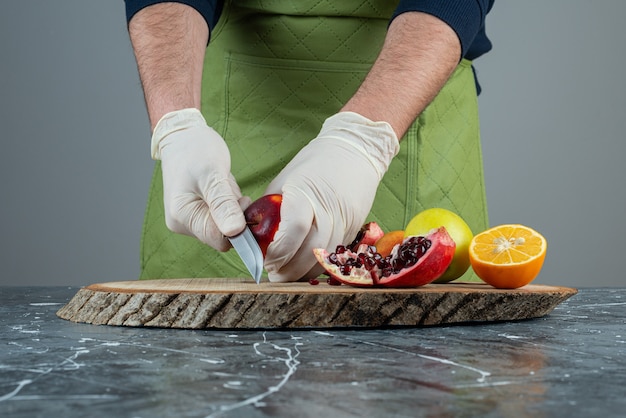
Time to fire up the barbie! Let's get this show on the road.
Getting Ready:
Before you start grilling, make sure your grill is clean and preheated to medium-high heat. A clean grill ensures a better flavor and prevents sticking. To test if it's ready, hold your hand about an inch above the grates. If it gets too hot after 3 seconds, your grill is ready.
Grilling Techniques:
There are two main ways to grill octopus:
- Direct Grilling: This involves placing the octopus directly over the heat. It's quick and creates beautiful char marks, but you need to be careful to avoid overcooking, as it can make the octopus tough.
- Indirect Grilling: This method involves placing the octopus on a cooler part of the grill, away from direct heat. It's a gentler method, perfect for larger tentacles and ensures even cooking.
The Grill Time:
The grilling time will vary depending on the size and thickness of the octopus tentacles. The best indicator of doneness is a change in color. It should go from a vibrant reddish-purple to a more orange-brown hue. The tentacles should also become firm and springy to the touch. If you want to be extra sure, you can use a meat thermometer and aim for an internal temperature of 145°F.
(Part 4) Serving and Enjoying
You've conquered the grill and created a culinary masterpiece! Now, let's get ready to serve and enjoy your delicious grilled octopus.
Cutting:
Before serving, slice the grilled octopus into bite-sized pieces. A sharp knife or a pair of kitchen shears will do the trick.
Accompaniments:
Grilled octopus is amazingly versatile and pairs beautifully with a variety of accompaniments. Here are a few ideas to get your creative juices flowing:
- Lemon wedges: The acidity of lemon perfectly balances the richness of the octopus.
- Fresh herbs: Parsley, oregano, and basil add a burst of freshness, complementing the smoky flavors.
- grilled vegetables: Peppers, onions, and zucchini provide a colorful and flavorful side dish, adding a touch of sweetness to the meal.
- Greek salad: A classic combination that's perfect for a summer lunch or dinner, with its fresh tomatoes, cucumbers, and feta cheese.
- Spicy aioli: A creamy and flavorful dip that adds a kick of heat, perfectly complementing the tenderness of the octopus.
- Pita bread: Ideal for scooping up all the deliciousness, creating a satisfying and flavorful bite.
Presentation:
Presentation matters! A beautiful platter can elevate your grilled octopus from a simple dish to a stunning centerpiece. Here are some tips:
- Arrange the octopus artfully: Create a visually appealing platter with your sliced octopus, alongside the accompaniments and a sprinkle of fresh herbs.
- Use a drizzle of olive oil: A light drizzle of olive oil adds shine and depth of flavor, enhancing the overall appeal.
- Add a sprinkle of sea salt: A touch of sea salt brings out the natural flavors of the octopus, adding a touch of sophistication.
(Part 5) The Taste Test:
Take a bite and let the flavors explode on your palate. The smoky char of the grill, the tangy zest of lemon, the earthy richness of the herbs - they all harmonize beautifully with the tender, slightly chewy texture of the octopus. It's a culinary symphony that will leave you wanting more.
(Part 6) Octopus Tips and Tricks
We've covered the basics, but here are some extra tips and tricks to take your octopus grilling game to the next level.
Tips:
- Don't overcook the octopus: Overcooked octopus becomes tough and rubbery, so keep a close eye on it during grilling. Remove it as soon as it's cooked through.
- Use a meat thermometer: A meat thermometer is a reliable tool for ensuring the octopus is cooked to perfection. Aim for an internal temperature of 145°F.
- Experiment with different marinades: Don't be afraid to get creative with your marinades. Add red wine vinegar, chili flakes, paprika, or even a touch of honey for a unique twist.
- Serve octopus cold: Grilled octopus can be served warm or cold. If serving cold, allow it to cool completely before slicing.
Tricks:
- Use a grill basket: A grill basket helps prevent the octopus tentacles from falling through the grates, making grilling easier and less messy.
- Grill the octopus over indirect heat: This helps prevent burning on the outside while ensuring the inside cooks thoroughly.
- Slice the octopus thinly: Thinly sliced octopus cooks more evenly and is easier to eat.
- Use a lemon squeezer: A lemon squeezer is a handy tool for squeezing fresh lemon juice over the grilled octopus, adding a burst of brightness.
(Part 7) Octopus Variations
Once you've mastered the art of grilling octopus, it's time to explore different variations. Here are a few ideas to inspire your culinary creativity:
Grilled Octopus with Chorizo and Peppers:
This flavorful dish combines the smoky char of grilled octopus with the spicy kick of chorizo and the sweetness of roasted peppers. The contrasting textures and flavors create a delightful symphony on the palate.
Grilled Octopus Salad with Potatoes and Olives:
This refreshing and satisfying salad features grilled octopus, roasted potatoes, Kalamata olives, red onion, and a tangy lemon vinaigrette. It's a light and flavorful meal perfect for a summer day.
Grilled Octopus with Spicy Garlic Sauce:
This dish is a real crowd-pleaser! The tender grilled octopus is tossed in a spicy garlic sauce that will have you reaching for more. It's a delicious combination of flavors and textures.
(Part 8) Beyond the Grill
While grilling is a fantastic way to cook octopus, there are other methods to explore, each with its own unique charm.
Pan-Seared Octopus:
Pan-searing is a quick and easy method for cooking octopus. Heat some olive oil in a pan over medium heat, add the octopus tentacles, and sear for 2-3 minutes on each side, until they are browned and slightly crispy.
Baked Octopus:
Baking is a gentler way to cook octopus, resulting in a tender and flavorful dish. Place the octopus on a baking sheet, drizzle with olive oil, and bake in a preheated oven at 350°F for 30-40 minutes.
(Part 9) FAQs
Here are some common questions about grilling octopus, with answers to help you conquer your culinary journey:
1. How do I know if my octopus is cooked properly?
The best way to check if your octopus is cooked is to look for a change in color. It should turn from a vibrant reddish-purple to a more orange-brown hue. The tentacles should also become firm and springy to the touch. You can also use a meat thermometer and aim for an internal temperature of 145°F.
2. Can I freeze octopus?
Yes, you can freeze octopus. To freeze, wrap it tightly in plastic wrap or aluminum foil and place it in a freezer-safe bag. Frozen octopus can be stored for up to 3 months.
3. What happens if I overcook octopus?
Overcooked octopus will become tough and rubbery, so it's crucial to keep a close eye on it and remove it from the heat as soon as it's cooked through.
4. What are some good marinades for octopus?
Some good marinades for octopus include: olive oil, lemon juice, garlic, fresh herbs, red wine vinegar, oregano, and chili flakes. You can also experiment with other flavors, like ginger, soy sauce, or paprika.
5. How do I serve grilled octopus?
Grilled octopus can be served warm or cold. If you're serving it warm, it's best to serve it immediately after grilling. If serving cold, allow it to cool completely before slicing.
There you have it! From choosing the perfect octopus to grilling it to perfection and serving it with a symphony of flavors, we've explored the world of grilled octopus together. Now, go forth, embrace your inner chef, and create culinary magic with this delicious and versatile ingredient. Happy grilling!
Everyone is watching
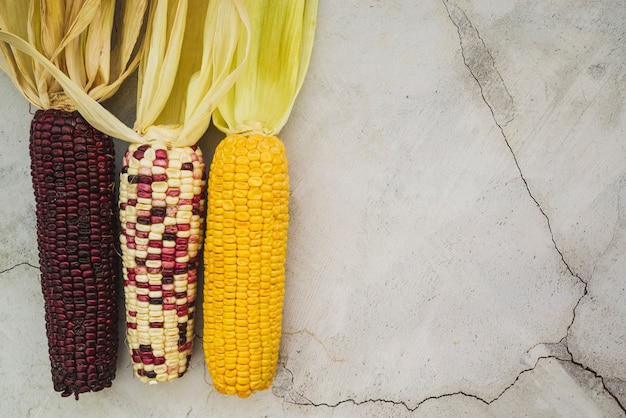
Corn on the Cob: The Ultimate Guide to Perfectly Cooked Ears
Healthy MealsAh, corn on the cob. Just the name evokes images of sunny days, barbecues, and that sweet, juicy flavour that ...
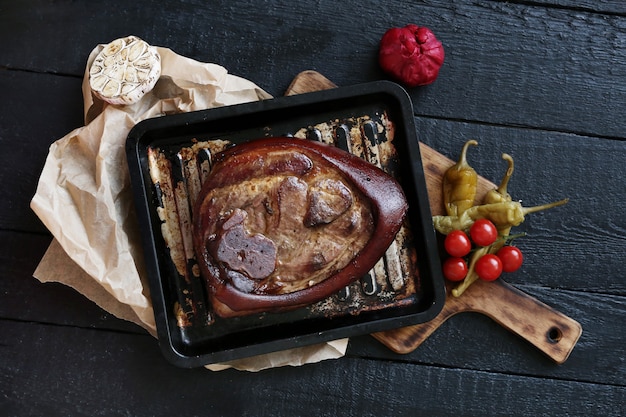
Perfect Pork Roast Oven Cooking Time: A Guide to Delicious Results
Healthy MealsThere's something truly satisfying about a perfectly roasted pork. The aroma alone is enough to make your mout...

Ham Cooking Time: How Long to Bake, Smoke, or Boil a Delicious Ham
Healthy MealsAh, ham. It's a classic, isn't it? A real crowd-pleaser, especially around holidays. And when done right, it'...
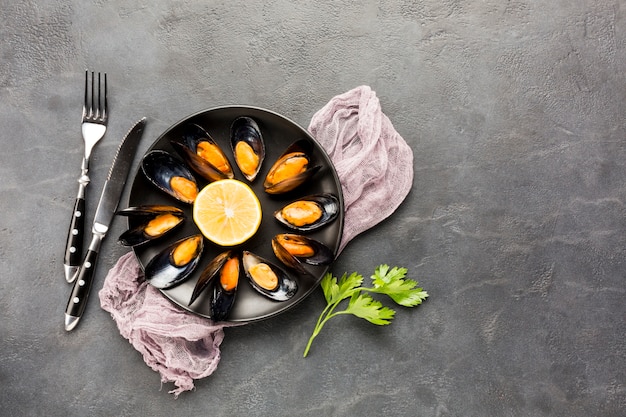
Scallops: The Ultimate Guide to Perfect Cooking
Healthy MealsAh, scallops. Those delicate, sweet, and utterly delicious morsels of the sea. They hold a special place in my...
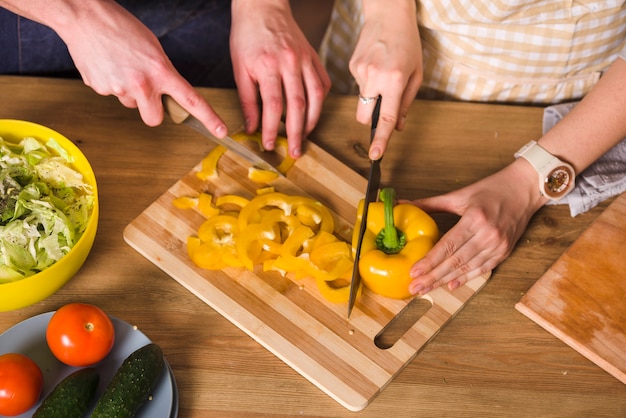
Spaghetti Squash: The Ultimate Guide to Cooking and Serving
Healthy MealsRemember that time you saw spaghetti squash at the supermarket, looking all bumpy and strange, and thought, "W...
